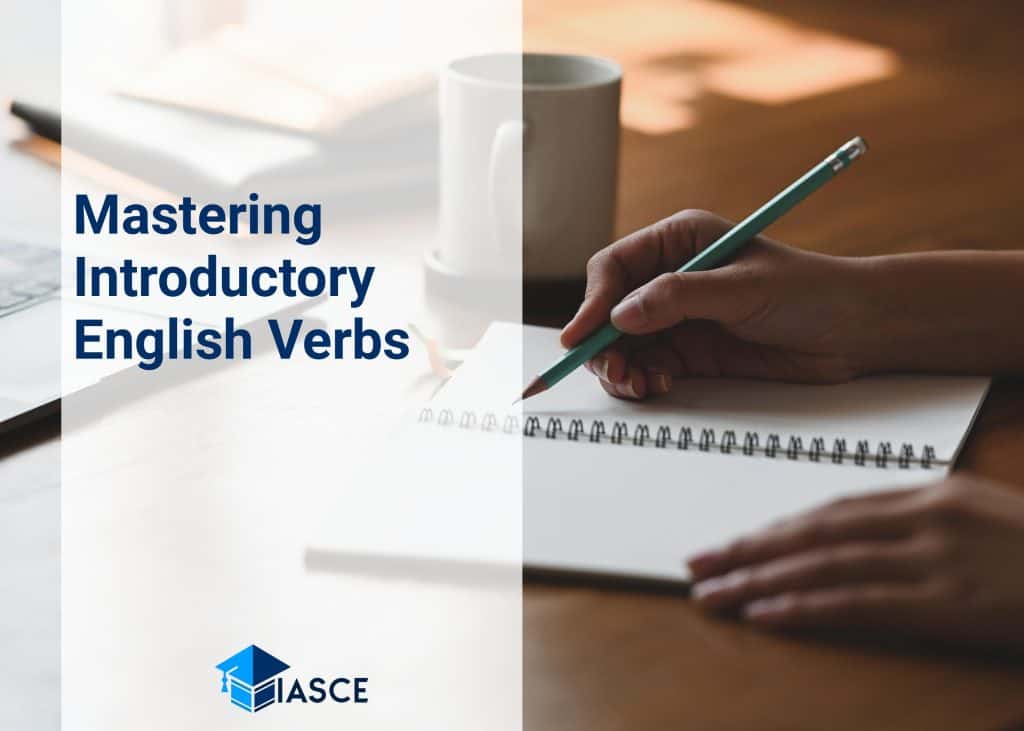Mastering the nuances of English grammar can often feel like trying to solve a complex puzzle. Let’s dive right in with an element that’s crucial yet commonly misunderstood – introductory verbs. These are the unsung heroes, setting the stage for our sentences and providing vital context.
I’ve long noticed how many language learners stumble over these seemingly simple structures. It’s not their fault, really. After all, English is notorious for its tricky grammar rules and exceptions. But don’t worry! I’m here to unravel this mystery for you.
So buckle up! We’re about to embark on a journey through the labyrinth of introductory verbs. Together we’ll conquer this critical aspect of English grammar, making your future conversations smoother and your writings more compelling.
Understanding the Role of Introductory Verbs in English Grammar
I’m diving right into the heart of English grammar today. My focus is on introductory verbs, those little heroes of our sentences that often go unnoticed. Their role? To set the stage for what’s coming next.
First off, here’s a truth bomb: Introductory verbs aren’t standalone entities. They’re part and parcel of larger structures known as introductor phrases or clauses. These can be simple or complex, but they always serve to provide context or background information for the main clause.
Let me give you an example:
While I was eating, my cat spilled my coffee.
Here ‘was eating’ is your introductory verb within the phrase ‘While I was eating’. It sets up a scenario for the main action – my cat performing its devious coffee-spilling antics!
Clearly understanding these handy verbs isn’t just about knowing their definition. It’s about recognizing them in context and appreciating how they contribute to sentence structure and meaning.
When it comes to identifying these little guys in text, there are some key things to look out for:
-
They often come at the beginning of sentences.
-
They usually precede a comma (though not always!).
-
They typically establish time frames, conditions or contrasts related to the main clause.
Now let’s talk usage. How do we use these introductory verbs correctly? Here are some quick tips:
-
Don’t skip that comma after your introductory phrase! This helps ensure clarity and readability.
-
Be aware that word order matters – rearranging words can change meaning dramatically!
-
Remember that not every sentence needs an introductory verb; sometimes simplicity is best!
So there you have it – a brief exploration of introductory verbs in English grammar. By understanding their role and how to use them effectively, we’ll enhance our writing skills and achieve greater clarity in communication.
Key Techniques to Master Introductory Verbs
When you’re learning English, mastering introductory verbs can seem like a daunting task. But don’t worry! I’m here to help break it down for you and make it easier.
Introductory verbs, also known as reporting or speech verbs, are used when we report what someone else has said. They can change the meaning of the reported speech significantly. Let’s look at a few key techniques to master these essential parts of English grammar:
-
Understanding Context: The context in which an introductory verb is used will often dictate its meaning. For instance, compare “He admitted he was wrong” with “He claimed he was wrong”. Both use introductory verbs but convey different sentiments.
-
Recognizing Verb Types: There are different types of introductory verbs – from those conveying certainty like ‘acknowledge’, ‘admit’ to those indicating uncertainty such as ‘suggest’, ‘propose’. It’s crucial to understand their nuances.
-
Usage Practice: Like any new skill, practice makes perfect. Regularly reading and writing sentences using different introductory verbs will build your confidence and fluency.
Here’s a table showcasing examples using various introductory verbs:
|
Introductory Verb |
Sentence |
|---|---|
|
Admitted |
She admitted that she had made a mistake |
|
Claimed |
He claimed that it wasn’t his fault |
|
Suggested |
They suggested that we take a different route |
Remember, there isn’t a one-size-fits-all approach when it comes to learning these grammar components; everyone has unique strengths and weaknesses. My advice? Be patient with yourself during this process – mastering English grammar won’t happen overnight! With consistent effort though, I’m confident you’ll get the hang of using these versatile language tools effectively in no time at all.
Conclusion: Embracing the Complexity of Introductory Verbs
As we wrap up, it’s important to note that mastering English grammar and specifically introductory verbs doesn’t happen overnight. It’s a journey of constant learning, practice, and understanding. The complexity of these verbs is what makes English language rich and exciting.
Embracing this complexity rather than fearing it is essential for anyone aiming to master the language. Let’s look at why:
-
While they may seem daunting at first, introductory verbs actually provide an opportunity to express thoughts more precisely. They add flavor to our sentences by providing context.
-
Understanding introductory verbs helps us differentiate between similar sounding sentences with vastly different meanings.
-
A firm grasp on these types of words aids in comprehension when reading or listening to complex narratives.
I’ve seen firsthand how tackling this challenge can enhance one’s writing skills significantly. Whether you’re an aspiring author or simply someone who wants to communicate more effectively in English, getting comfortable with introductory verbs will set you apart.
In my experience teaching English grammar, I’ve found that consistent practice paired with a genuine curiosity about the language yields the best results. Don’t shy away from experimenting with different sentence structures or delving into texts outside your comfort zone.
Finally, I encourage everyone not just to learn but also appreciate the intricate beauty of English grammar. It’s not merely about memorizing rules or acing tests but truly understanding how these elements come together to form meaningful expressions.
So here’s my final word – dive headfirst into the sea of introductory verbs and swim through its waves freely! You’ll soon find yourself navigating with ease and confidence within the vast ocean of English language.

